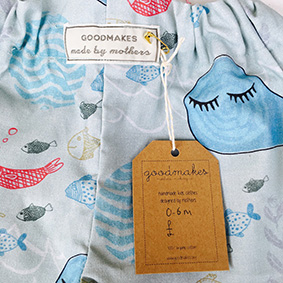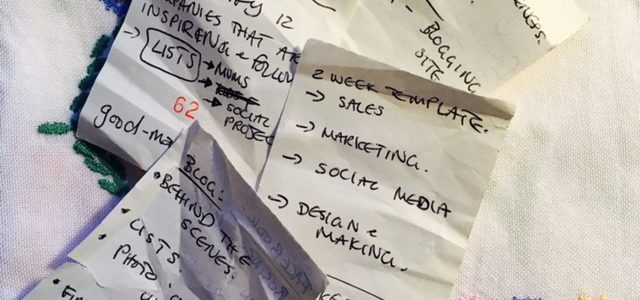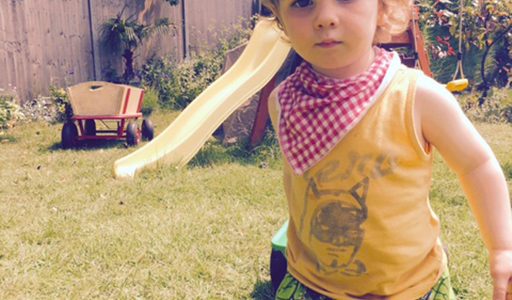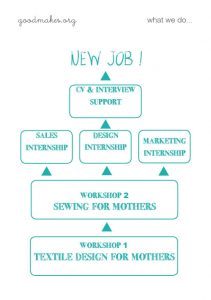The takeout from the best meetings always seem to wind up scrawled on the back of a napkin or in this case, the (very patient) waiter’s notepad.
goodmakes was lucky enough to meet up with fab Digital Mum Madelaine Healey (twitter @madzhealey) to have an inspiring and super informative conversation about the process of including social media strategy as an integral part of the social enterprise start-up business plan in order to connect with people and grow the business.
So now you can follow goodmakes on twitter @good__makes and on instagram at good.makes 🙂
 Here are a few tips I took from the meeting and from some research I did online, for anyone who wants to include a social media strategy in their startup process:
Here are a few tips I took from the meeting and from some research I did online, for anyone who wants to include a social media strategy in their startup process:
1. Define social media goals for your business.
The following goals can be achieved through social media on little or no budget:
Brand awareness
Using social media as a channel for driving brand awareness happens organically as you post content, engage with target users and so promote your brand.
Content distribution / dissemination
Sharing engaging and original content is a great way to get the word out about the brand as others share your posts and advertise your brand for you.
Lead generation
Ideally, you would like your social media profiles to be lead generators that drive traffic to your website or blog. This requires a long-term investment and results usually aren’t seen for many months.
New Customers Finally, the best case scenario is that your social media profiles raise brand awareness, your content generates leads, and leads turn into customers. If you can use social media as a customer acquisition tool, you’ve officially maximized its value.
2. Choose appropriate social media platforms
Depending on your strategy and goals, you should be able to choose which social media platforms are right for your startup.
Here is a brief overview of six major social media platforms that are potentially of value to startups:
Facebook As the largest social media platform on the internet, Facebook is the best way to reach the masses. It’s the most far reaching platform with 700 million users and most established business have a Facebook page, lending credibility to the business.
Twitter Twitter users are more likely to interact with or purchase from the brands they follow. If content distribution and one-on-one customer engagement is important to you, Twitter should be a key part of your social media strategy. Identify at least 12 companies that are inspiring and follow them.
LinkedIn Startups and companies on the look out for business partners can use LinkedIn in to engage other professionals as it facilitates global networking.
Instagram A powerful way to visually engage your target audience, Instagram is an easy tool to create a visual identity for your brand – indeed “A picture speaks more than a 1000 words”.
YouTube An incredibly influential Brand Awareness tool, You Tube allows you to share engaging videos with millions of eager users. By easily creating high quality videos you can personalise your approach to facilitate conversation and cross-market your brand by sharing content on other platforms.
Pinterest. Is the fastest growing social media platform and is particularly conducive to startups with physical products if they are well photographed and so regularly added to Pinterest boards.
Some helpful tips…
Update social streams frequently! Creating lists, guest blogging and photos are good ways to engage people and grow your audience.
More listening, less talking. Focusing on listening to your followers to gather valuable feedback to learn from is a determining factor in the success of the brand / business. If social media platforms like Facebook and Twitter are used properly they can essentially serve as ongoing free focus groups for your startup.
Build a community. For the long-term, building a community of “brand ambassadors” who share your content and support your business activity is crucial to a successful social media strategy.
Don’t be afraid to try new things! So long as you preserve the integrity of your brand, experimentation is a valuable way to gather information and reach new followers.







